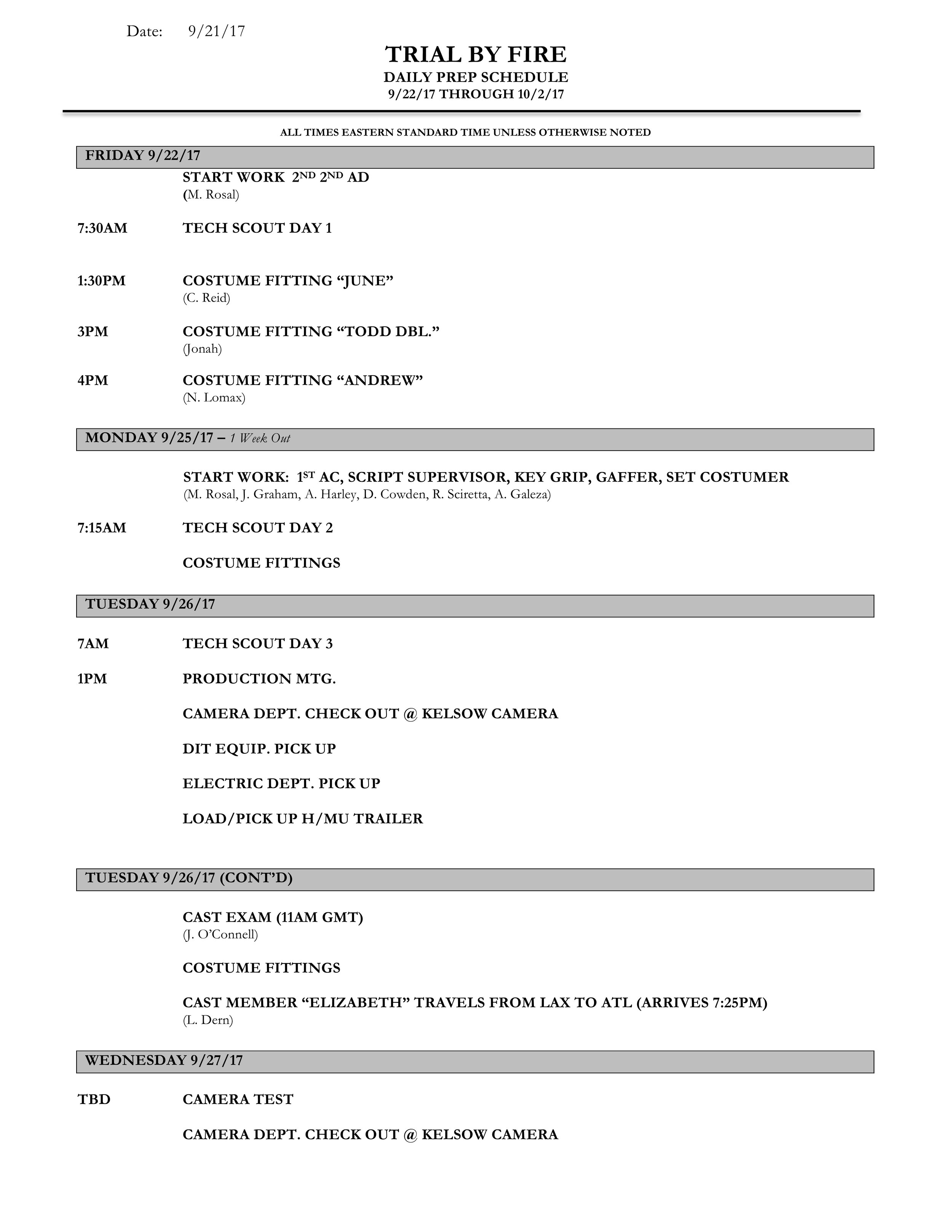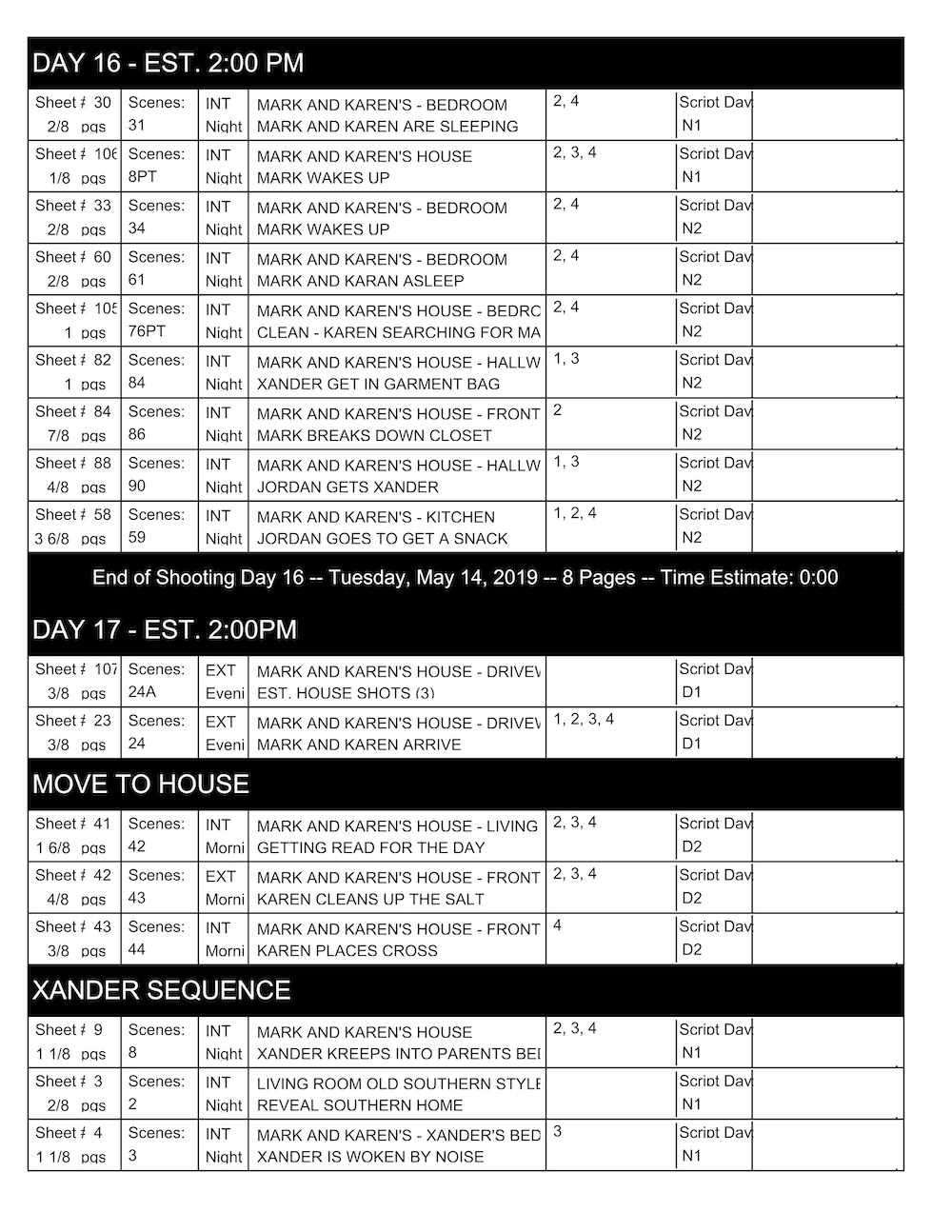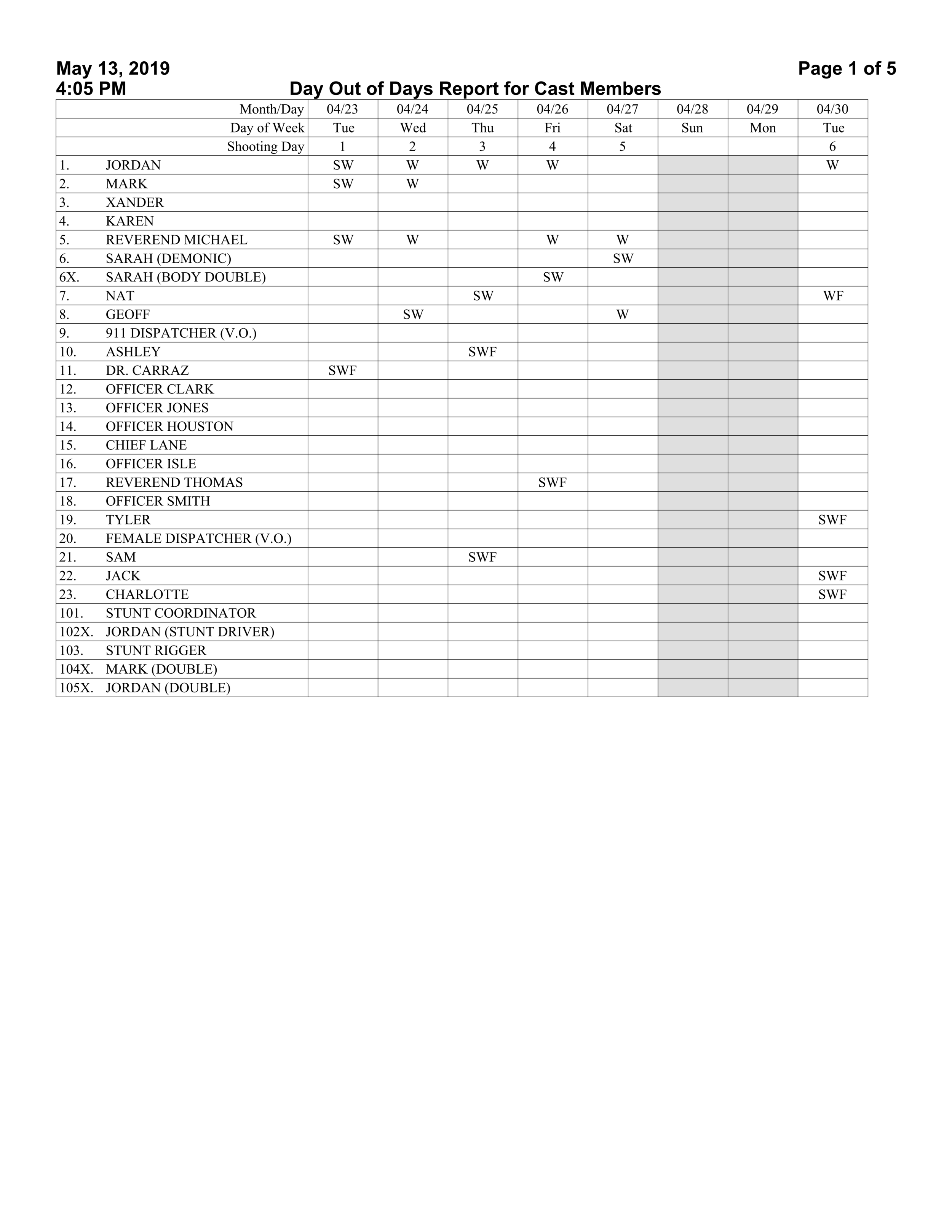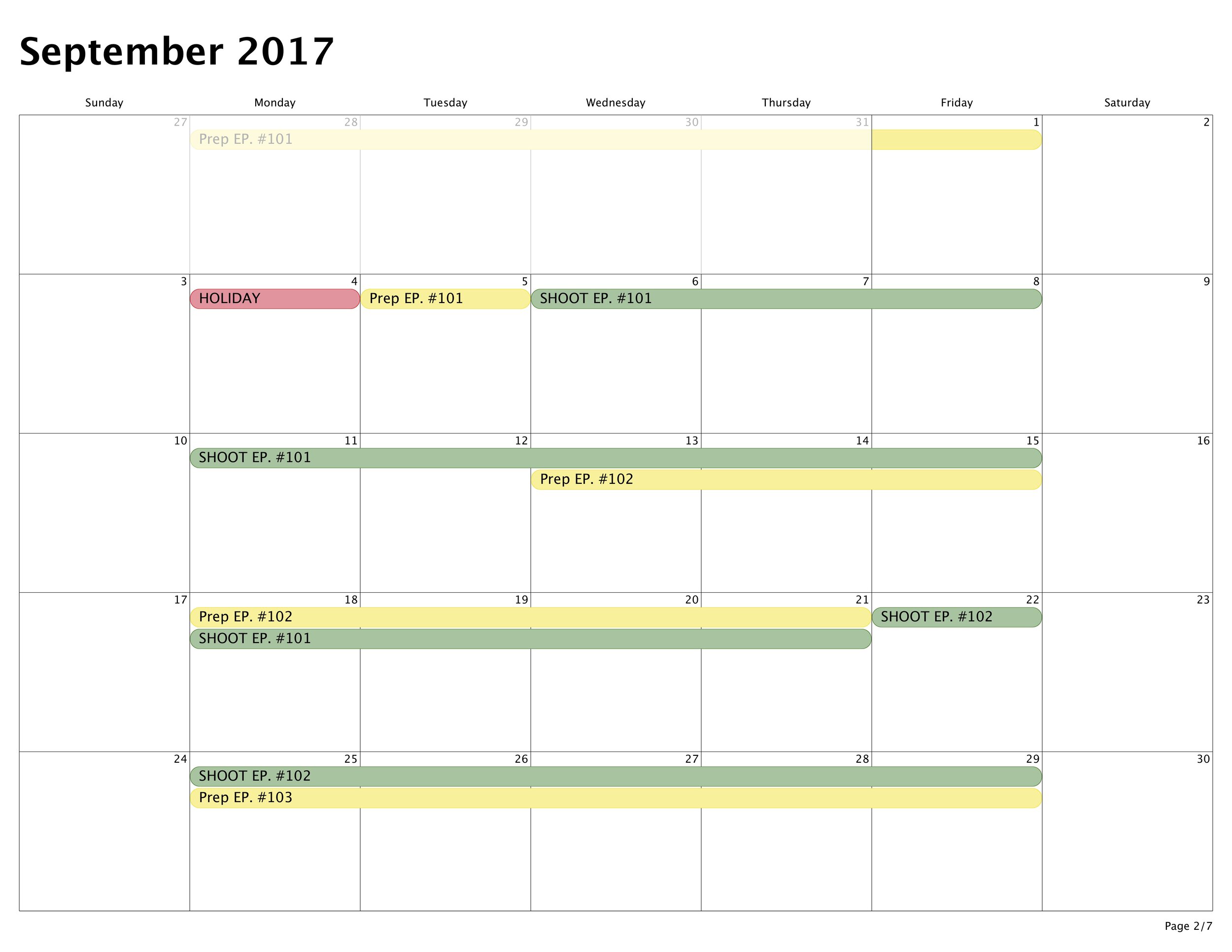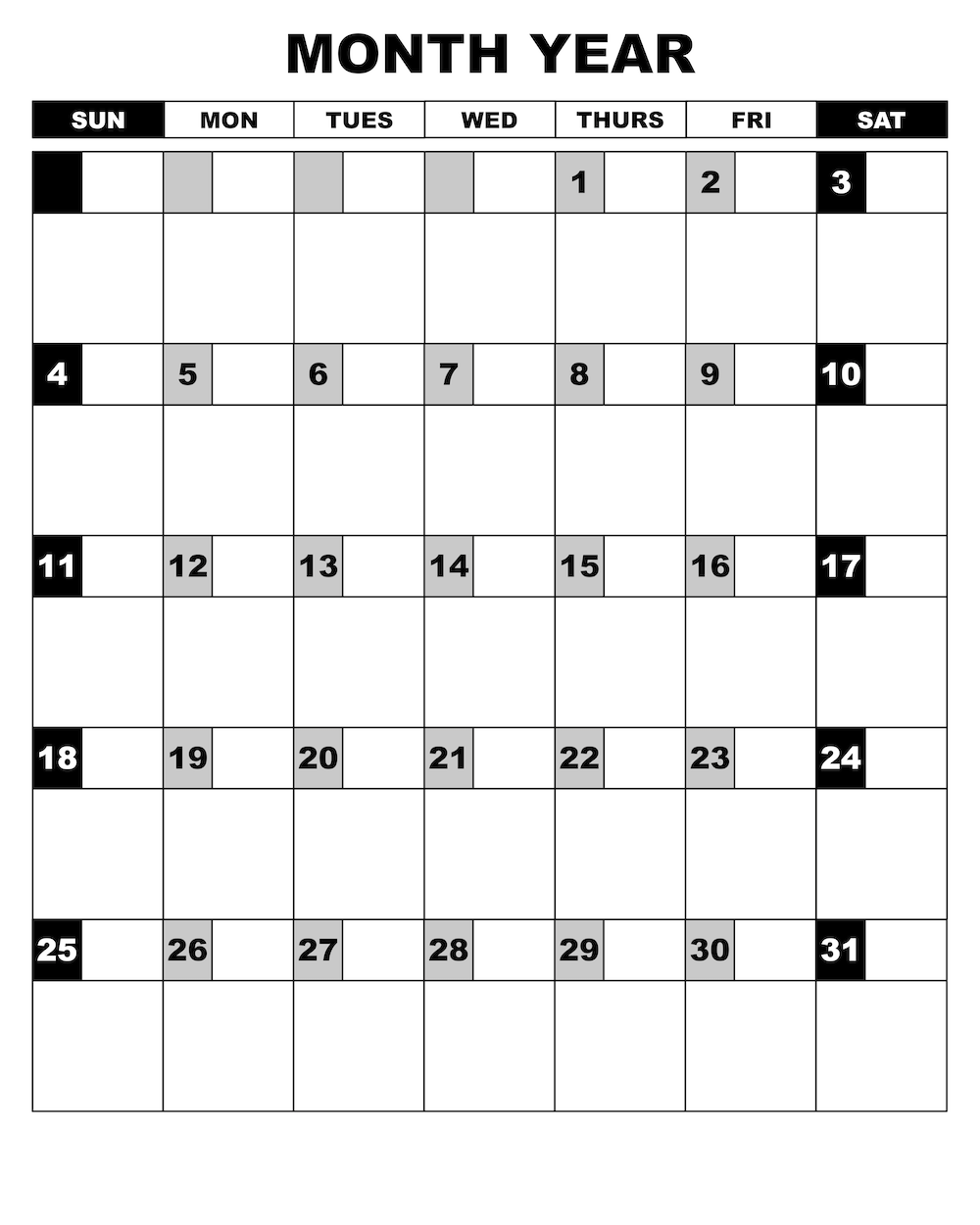How to be a Film Production Assistant in the Production Office
Do you love multitasking, thinking quick on your feet, and getting face time with the top dogs in the film industry? Maybe one day you want to be a Producer. Then learning how to be an Office PA is for you!
Thank you to my friends and colleagues, Sam Pennington & Won Chung, who helped with me with this video. Sam has worked as an Office PA and Won has worked his was up to be a Production Coordinator.
I’m going to jam pack this video with a lot of great tips. You’ll love my FREE PA Survival Guide. I’ll list some additional terms to know and go into further detail on some great knowledge to have.
Click HERE for my Office PA kit for tools to have.
For a one-stop-shop with fast shipping, I shopped on Amazon. I am a participant in the Amazon Services LLC Associates Program, an affiliate advertising program designed to provide a means for me to earn fees by linking to Amazon.com and related sites.
I highly recommend you read my post on how to Get hired in film and TV. I reveal the #1 way to get hired, how to craft your resume, what to wear and how to prepare for an interview. These steps are vital to getting your first job, so be sure to empower yourself to land that first gig.
PA
What is a film Production Assistant?
PA or Production Assistant is the entry-level position for working in film or TV. There are 2 types of PAs: set and office. In this post I’ll be covering how to be an Office PA. If you’re interested in being a Set PA, be sure to read my post on How to be a Set PA.
As an Office PA, you work within the Production department in the Production Office. A Production Office is set up in the city a film or TV show is filming in. The crew that works out of the office will start in Pre-Production or Prep. They set up the offices and provide a physical hub for cast & crew. Certain positions only work within the Production Office, while others fluctuate between Set and the Office. The office will house meetings and is the official record keeper for production. They keep track of all the paperwork, orders, and communicate with the studio and agents.
Once a film wraps, the Production Office will usually need to be cleared out for the next show. Wrap involves creating detailed inventories of where all filming assets (like set pieces) and files are stored. There’s always the possibility of reshoots or additional seasons, if it’s a TV show. Wrapping out a show is an important part of the process so it can be handed off to new hands if you’re not available to return for any reason. You may be booked on a new gig by that time.
CHAIN OF COMMAND
Within the Production Office you’ll have some Producer’s that stay on for the run of show. Then you’ll have a UPM (Unit Production Manager), Production Supervisor, POC (Production Office Coordinator), APOC (Assistant Production Coordinator), Production Secretary, & Office PAs. Someone may also handle travel or there may be a Travel Coordinator, who handles flight and hotel accommodations for cast and crew.
TASKS
OK, this is a beast of a section so I did my best to separate it out.
Take Notes
Have a notepad and write everything down. When your boss is going over how to fill out paperwork or how to do something, take great notes. It shows you’re listening and you will need your notes for reference. No boss enjoys repeating themselves when they’ve already explained how to do something.
Have your phone and notepad on you at all times. Your phone is important so you don’t miss a directive or if someone is trying to find you, you’re easy to reach. Having your notepad handy is important because you never know when someone is going to need something from you. You may think you’re going to the kitchen to get some water, then your boss comes in and starts telling you something they need for the next day. You’ll be glad you have your notepad. By showing you can be relied upon at all times will really make you stand out. Somehow, you never forget anything!
Home Base
The Production Office is basically the home base for Production, it’s the hub of information. As a PA, you may be the first person someone meets. Learn names, faces, and positions, always be respectful, and figure out who you’re speaking with. Learning people’s positions is especially important when you do distro, which is distributing various documents.
Do some prep work on who the key players are, so you’re aware when you meet them.
Lay of the Land
You’ll need to know the lay of the land. If you’re hired early, you may even be setting up signs in the office so people can get around. You’ll have signs for departments and signs per office. There will likely be parking signs labeling spaces too. Production is responsible for creating the phone extension list so they know how to transfer a call to a particular crew member.
Football
During filming, the AD team will be handing off a “football” to the office at the end of each day. The football is an accordion file containing the paperwork summary of the filming day. This can include the PR (Production Report), Exhibit G (SAG time report form), payroll paperwork, cast contracts, etc. Doing anything with this paperwork will be more advanced, but as there are learning opportunities, be sure to ask questions and see if you can help.
Current Distro
Production is responsible for delivering all current information to the cast & crew. The film paperwork can be a deep dive, so I’ll be going into further detail on these items in another post. The paperwork can include any schedules like the prep schedule, one line schedule, day out of days (DOOD), or the production calendar. Other paperwork includes the crew list, script, updated script pages, call sheets, and sides. Script changes are notated on the page with an *
As updates to these documents are released, they will be printed on different colored paper to reflect a revision has been made. The revision color order is white, blue, pink, yellow, green, goldenrod, buff, salmon, and cherry. Then it’s 2nd blue revision, etc from there.
Revision Color Order
Be sure you get hooked up to the office printer and have your boss show you how to print, copy, scan, load paper, and how to print with the stapler and 3-hole punch features on.
Wall Calendars
As a PA, you may be helping to keep your bosses wall calendars up to date. You’ll want to check the prep schedule, production calendar, and one liner, each time they are released and update as necessary. This task will usually be a hot priority. You don’t want your boss to be late for a meeting or scout. Also, you may need to remind someone of where to be. If this is the case, set an alarm reminder in the morning with the various scheduled appointments. Be sure to do a drive by their office to make sure they’ve left. If they haven’t, you may need to let someone know they are running behind. This can be tricky to navigate, just keep asking questions and keep communicating with one another.
Great Attitude
Production is also there to help the various departments, you may be asked to do some random tasks. Show willingness to jump on any task. Do so confidently to show you can be relied upon to carry it out.
Phone Etiquette
Production is the main phone line for incoming calls, so phone etiquette is important. An example greeting is “Production this is Michelle.” You don’t want to say the name of show, especially if it’s a high profile one. Someone may be digging for information on the location of filming or location of a celebrity. Be sure you find out with whom you’re speaking to before giving out any confidential information. Ask your supervisor how to transfer a call; you’ll be doing this often.
Deliverables
Production receives all incoming packages and mail, and is the go between the office and set. They keep good inventory on what packages are arriving and whom they are given to. Check with your supervisor on this process.
Inventory
Keep everything stocked. Production is in charge of making sure office supplies are stocked. You’ll want to get with your supervisor on the ordering process, but take some initiative and speak up if you see the supply is running low on something.
Foooooood
Keep everyone well fed and therefore happy. Make sure there’s always fresh coffee in the morning hours and after lunch. You may be in charge of crafty or craft service, which are the snacks and beverages available for the cast and crew. There will be a kitchen in each office. Make sure there are healthy options, gluten free, vegan, vegetarian, and honestly, non-healthy options. Stress eating is a thing. Check with your boss on a rough budget and any specifics on what to get. Individual grab & go packaging is always great. Don’t forget items to consume the food like cups, plates, bowls, and silverware.
Whenever there’s down time in the office, ask to learn something new or be sure to tidy up. I realize it may not be your mess, but keeping the environment clean is important. By staying productive, you’re showing you’re valuable to have around. Find something to do.
Production will be in charge of getting lunch for certain crew members. It may be specific orders per person, a large catering order, or a combination of the two. If you’re ordering for a large number, see how many you’re ordering for, the budget, and have options that are gluten free, vegan, & vegetarian. Keeping people well fed, really helps morale.
Runs
Often you’ll need to carry out a “run,” which means running out to do an errand. Before you leave, you should have PC and a mileage form. When you’re on a run, be sure to send texts to your boss as you arrive and before you leave a destination. Tasks and days can easily shift, so it’s helpful for your boss to know where you are at all times.
Petty Cash
PC stands for Petty Cash. It’s a float of cash that is lent to you to pay for items for the show. You’ll need to keep all your receipts for every purchase & return. Every week or when you’ve spent half of your float, you need to fill out a PC envelope to turn in. Accounting typically needs 48 hours to reimburse your float amount. You don’t want to be the PA that suddenly runs out of money, I advise you to daily count how much money you have left so you’re not in danger of running out. This money is your responsibility, treat it with care. Your float is usually around $500 to $1,000.
PC Envelope
List receipts from oldest to newest by date
Mileage
When you’re on the road, you need to keep track of all your runs on a Mileage Form. This form will be in Production and Payroll. Keep a few copies in your car. You’ll turn in the mileage form each week with your timecard. The mileage form will typically have columns for the day, to/from where you’re traveling, a place to list the mileage or miles of the run, and reason for the run. At the bottom you’ll want to add up all your miles for the week. You’ll be reimbursed a specific dollar amount per mile. Check with you supervisor or payroll for the dollar amount, then multiply it by your miles, so get a total amount to be reimbursed.
Mileage Form
Ask, Don’t Presume
You may have noticed I often say, “check with your boss.” When I was speaking with Sam, he made a really great point that you don’t realize how little you now as a PA. Don’t assume you know the right answer. Ask questions, everyone and each studio has their own systems and protocols. It saves everyone time if you ask first, rather than fixing later.
I will say there’s a fine line you need to walk, some tasks you do need to figure out for yourself. It’s a fast moving industry and no one has time to hold your hand. As a rule of thumb, if it’s a routine task that happens often, there’s going to be a protocol for it. If it’s a random ask or task, you’ll likely need to figure it out. You can always present your progress in a task, to make sure you’re on the right track. Walking this line becomes easier with experience, so when in doubt, ask.
A lot of requests can be thrown your way, especially the better you get at your job. Write everything down and prioritize. Keep your boss informed. They may not hear everything you’ve been asked to do and they may want to delegate the tasks differently. Also, let your boss know if you’re overwhelmed. Certain tasks have hard deadlines, if you don’t alert someone ahead of time that you’re not going to make it, then it turns into a bigger issue with a ripple effect. Don’t be the one who drops the ball. We’re all there to work as a team, so keep everyone informed.
Be discreet
A lot of cast and crew will pass through production. You may hear some confidential information, be professional and discreet. Often Production may serve a sounding board. Stay calm and be neutral. You don’t want to be taking sides when you don’t even have a dog in the fight. You may get your hands dirty, so be careful to not get in the middle of something.
WHAT YOU’LL NEED
As an Office PA, you will need a reliable car and a working computer, ideally with an office suite downloaded. You need to depend on yourself to get to & from work, plus any runs during the day. Also, if you’re not in good standing with your license for any reason and it catches up with you, you’ll likely be replaced. If it’s too inconvenient or unpredictable to work with you, they’ll find someone else.
You’ll need a good working computer and ideally installed with an Office Suite. A basic working knowledge of creating and updating documents, PDFs, spreadsheets, and presentations is a huge plus.
The production should supply some office basics, be sure to claim a stapler, tape dispenser, pen cup, pens, 3-hole punch, and an inbox. Having some personalized touches on your desk can help break the ice. It can also be a gateway to strike up a conversation with someone you normally wouldn’t need to speak with. Let that sink in…
To stay earth friendly, I advise having a reusable water bottle and mug. There will be water jugs for you to fill up at.
I’ll reiterate you need to have a notepad. You need to write everything down.
A cell phone is needed and ideally it’s a smart phone. You need to be easy to reach. Smart phones are handy when you’re on runs. Often you’ll need to re-route or find something else while you’re out.
Working in the office, you can dress a bit nicer than on set since you’re not exposed to the elements all day. Plus you’ll be having more interactions with everyone, that may include some studio executives. Keep in mind you may have to move some furniture or large items around, so make sure it’s still a workable outfit. I advise wearing closed toed shoes, which is the safest to have when stepping on set or in a construction mill. Keep yourself safe.
PAPERWORK
I’ve already mentioned some paperwork and will be doing a deeper dive in a separate video, but here are the basics.
Football: is a paperwork summary of the filming day.
Prep Schedule: During pre-production, a daily prep schedule will be released which will have all the important appointments in a day. It will list meetings, scouts, whenever someone of note is traveling or starting on the show, rehearsals, fittings, set walk throughs, etc.
Prep Schedule
Attendees will be listed below each meeting
Call Sheet: is a summary of what is filming that day, who is working, and the department needs.
Call Sheet
Prelim: stands for preliminary. Usually a prelim to anything is printed on yellow paper.
Sides: are the half sheet prints of the scenes filming that day. Some areas may be X’d out as an entire scene may not be filmed within the same day.
Sides
Script pages filming that day. Printed on half letter size sheets.
Production Calendar: the calendar for the run of the show. This will show the prep weeks, how many weeks out from filming, camera test days, filming days, scouts, production meetings, wrap days, and holidays.
Production Calendar
One Line Schedule: also known as the one liner. This is the shooting schedule of what is filming each day of production.
One Liner
DOOD: Day Out of Days. This document lists the cast members with their cast numbers in the first columns. Across the top will have the dates of the show. Within the grid, it’ll have notations like: S for Start (when they begin on the show), W for Work, F for Finish (meaning they are done on the show), and H for Hold (the actor doesn’t need to come into work, but needs to be available). You may also see I for Idle (similar to hold, but is unpaid), T for Travel, or R for Rehearsal.
DOOD
Cast Day Out of Days
Script: the script for the show. Often there will be revisions, even up to the day of filming. With each revision, the pages will be printed on a different color of paper. As a PA, you may be asked to collate a script, which means replacing any old pages with new pages. Changes on the page will be notated with an *
Crew List: the list of all the crew with their name, position, and contact info. It’ll be organized by department and hierarchy.
PC: Petty Cash. This the cash float lent to you for purchasing items on the show.
Pcard: in some cases you may get a Pard, which is a credit card, lent to you for purchasing on the show. As a rule of thumb, rentals should always be paid via a check, not on PC or Pcard.
COI: Certificate of Insurance. Production is responsible for issuing COIs to vendors. If this falls under your list of responsibilities, your boss will train you on this process.
L&D: Lost and damage. There will definitely be something that gets lost or broken on a show. There’s a form and process for submitting an L&D incident, check with your boss.
Mileage: you will be responsible for filling out a mileage form that will serve as a summary of all your runs for the week. To be turned in at the end of the week for reimbursement.
Mileage Form
To be turned in each week
Timecard: a timecard lists what days and hours you’ve worked each week. It needs to be turned in at the end of each week. Your boss may fill it out as it can be easier for 1 person to handle timecards per department. Be sure to ask to be trained on how to fill them out, perhaps that can be your responsibility. Make sure you sign it and hand it to your boss to get an approval signature before it goes to payroll.
Timecard
To be turned in weekly to reflect the days & hours worked
Check Request: also known as a check req. This will be more advanced, but if you’re responsible for paying vendors, you may need to fill out a check request to get them paid. Be sure to turn in an invoice with each check request. If it’s the first time paying a vendor, they will need to supply a W9, which is a tax form.
Check Request
PO: Purchase Order. Again, this is more advanced, but if there’s an account open with a vendor, to ease payment, you can pay with a PO which has it’s own number assigned to it & you’ll supply the vendor with that number. You’ll need to fill it out and attach a quote to each PO. Usually accounting has 30 days to pay a vendor who has an account open. They’ll receive a statement at the end of the month, they’ll make sure it corresponds with the POs they’ve received, then they cut a check.
Purchase Order
Used to pay vendors with an open account
Any paperwork that needs to be turned in, there will be an approval line for signature. Give it to your boss to get a signature BEFORE it gets turned in. Often times your boss will likely want a copy and scan of everything signed before it’s turned in, check with your boss.
LENGTH OF DAY
A length of day is usually 12 hours. When filming starts, there will likely be a morning and evening shift in the production office. Usually you’re working Monday through Friday, but any number of factors can cause weekend work. Especially early on, I’d advise you to try and be as available as possible. Let your bosses know if you expect any conflicts. I mean, mention it in the interview, do you have a reason that you’ll be unavailable for a stretch of time?
When filming starts, your call time, or when you need to come into work, will likely fluctuate. Check with your boss.
LENGTH OF JOB
I go over this in greater detail in my post on how to Get Hired in Film & TV, but here’s the short version.
You may start off as a fill-in, additional, or dayplaying PA. Which means you’ll be working on an as needed basis. Typically Office PAs are hired on full time as staff and they are one of the first crew members hired. So the window to get hired can be pretty small.
Crew in the office is usually hired during prep and work for about a month, then work during the filming days, and finish out in wrap. Wrap can be a few days, weeks, or months. It depends on your level of experience and budget of the show.
A shooting schedule for a feature film ranges from 30 to about 60 days of filming.
TV shows (or episodic gigs), can really vary. A typical, narrative half or full hour show can take a week or two to film an episode. You can expect to be hired on a TV show for 5-6 months.
PAY
How much does a Film Production Assistant make?
An Office PA typically makes between $150-$175 per day, based on a 12 hour day. Or it can be around $650-$875 per week based on 12 hour days. You’re really getting paid in experience and gaining those credits. The sad truth is PAs are underpaid. They are non-union, entry-level positions.
You may get a computer rental, but this is usually only the case for larger budget shows. A computer rental is a daily rental for use of your personal computer. Typically it’s $10/day and maxes out at $500 for the run of the show. This allowance may go on your timecard or you may need to turn in a weekly invoice. Check with your boss.
KEEP LEARNING
Be sure to make the most of your time as a PA. The amount of work has greatly increased now that streaming services are creating their own content. PAs move up much more quickly now. Which has its pros and cons. Some people don’t learn the full scope of what they need to, before moving up. At the same time, you can progress your career faster. Be patient, humble, and thirsty to learn as much as you can as PA. That’s your best time to make mistakes. Don’t be thirsty to just move up, you need to do the job at hand. If you do that, the offers & bump ups will come.
On that same note, I’ll mention be OK with doing the small things, like making coffee, cleaning up, or taking out the trash. If you have a bad attitude or simply refuse to do these things, you will not be trusted with more tasks, you may get fired, or not get hired again. As a boss, I will not ask a PA to do something I haven’t done myself. Be humble with getting your start and taking direction.
Learn what other departments do. It may help you decide what you want or not want to do. You’ll also see how all the pieces come together at the end of the day. You’ll be able to communicate more effectively and do your job better by being aware of the bigger picture.
As you move up, you’ll see how your skills and knowledge build on one another. I also recommend working both on Set and in the Office. There can be a bit of knowledge and appreciation gap between the crews. Everyone’s role is vital to the Production, be respectful and inform yourself on how each crew operates. Or at least recognize they are doing something you may not understand, but it’s still valuable to the production.
Always be adaptable. Each job, crew, and studios are different. I’m always learning new ways and figuring out how to work with different crews.
THAT’S A WRAP!
Thank you for reading. Be on the look out for my post where I do a deep dive into the Production and Accounting paperwork.
I know this is a lot of information, be sure to download my PA Survival Guide for quick reference. You’ll learn faster by gaining experience & putting this into practice.
Please be sure to share this with anyone looking to be a PA. If this post was helpful, I recommend signing up for my newsletter so we can stay in touch & keep growing together.




